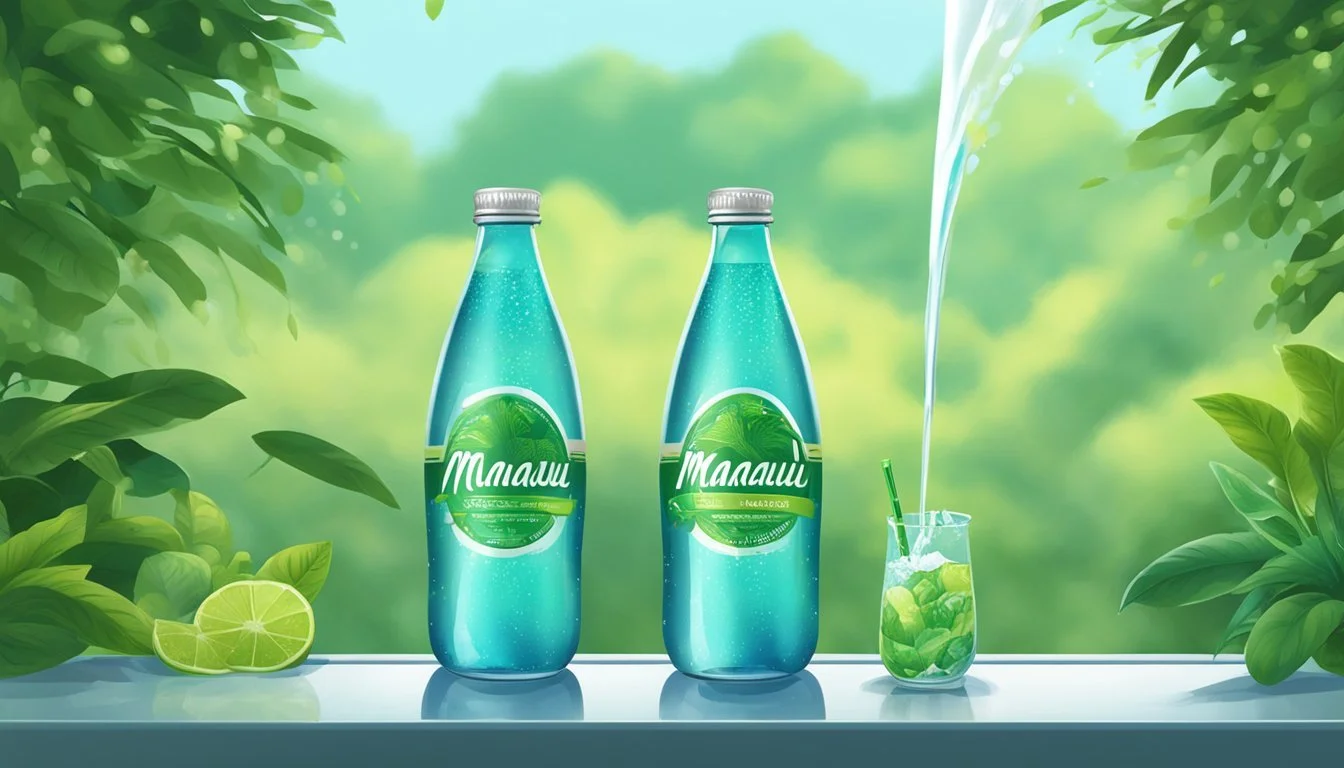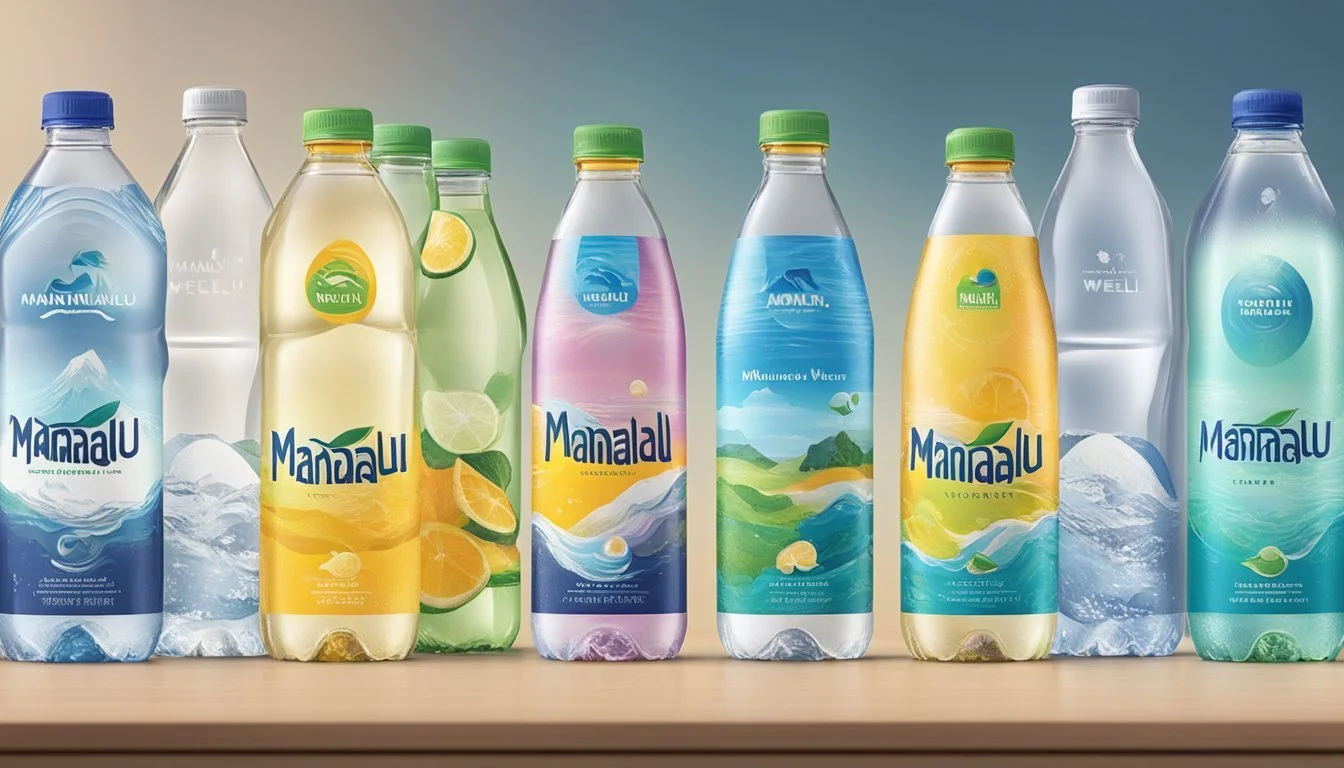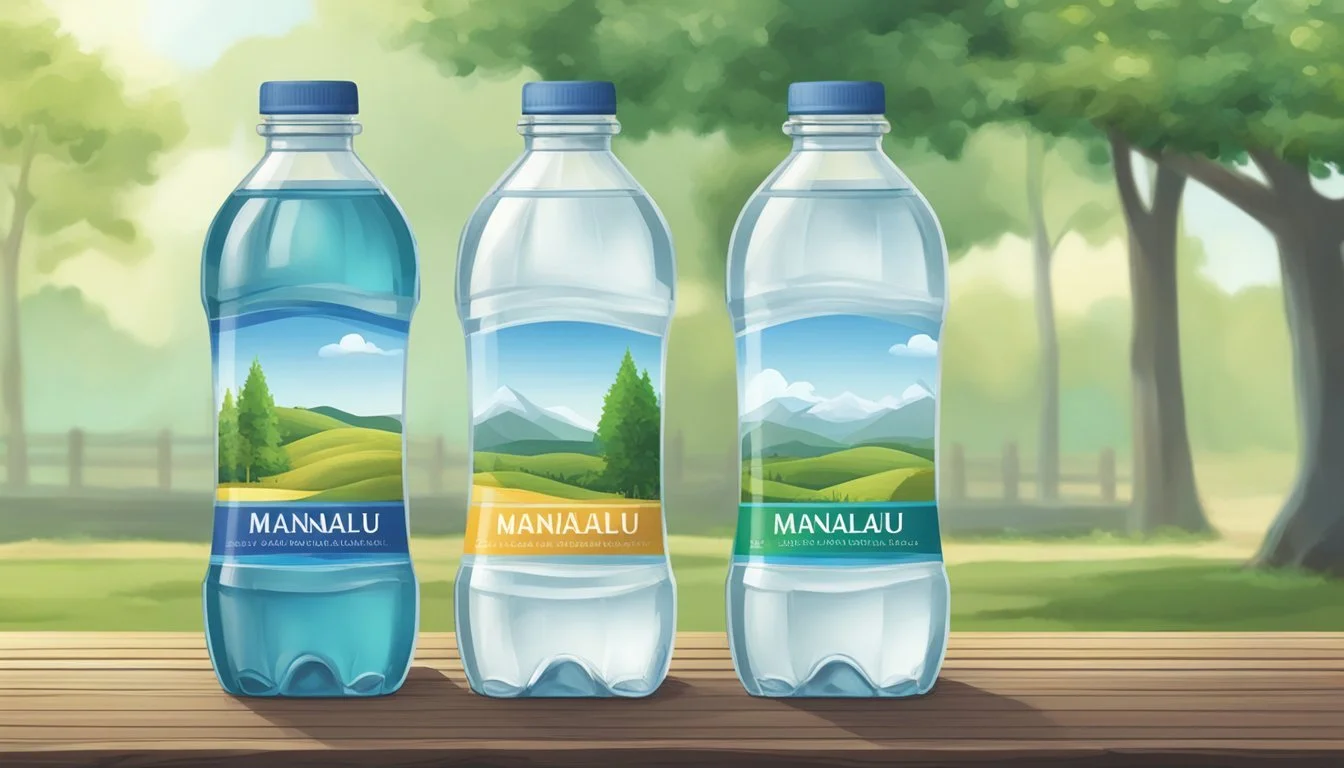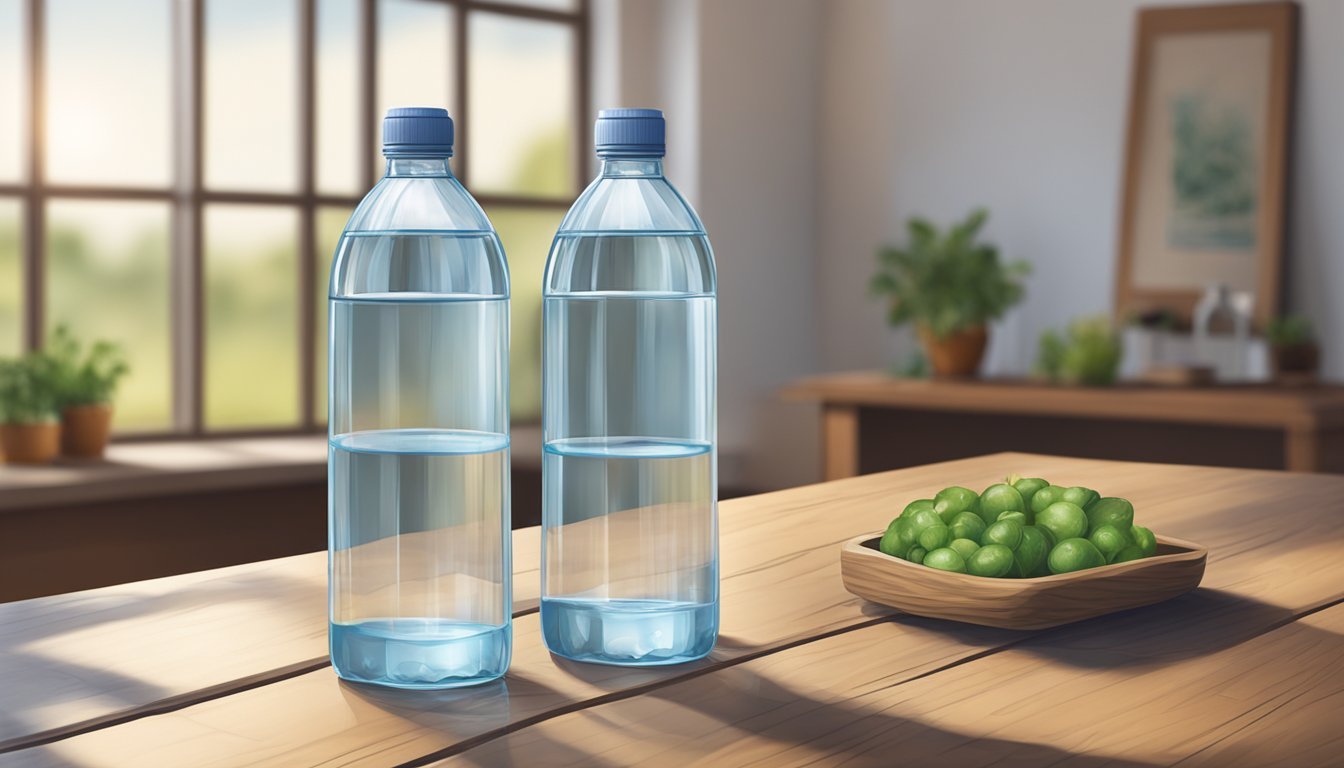Mananalu vs. The Well
Best Bottled Water Comparison
When choosing between Mananalu and The Well for bottled water, several factors come into play, notably sustainability and packaging. Mananalu, founded by actor and environmental advocate Jason Momoa, offers purified water in 100 percent recyclable aluminum cans. This choice of material emphasizes durability and a commitment to reducing single-use plastics. The Well, on the other hand, traditionally packages its water in plastic bottles, which poses environmental concerns despite being recyclable.
Mananalu's aluminum bottles provide a more sustainable option compared to The Well’s plastic packaging. Aluminum is not only infinitely recyclable but also reduces reliance on single-use plastic bottles, which have a significant environmental footprint. Both brands aim to provide pure and refreshing water, but Mananalu's mission-driven approach toward sustainability sets it apart.
Availability also plays a crucial role. Mananalu water can be found online and in various grocery stores like Safeway and Whole Foods, making it accessible to a wide audience. The Well, while also widely available, doesn't have the same strong environmental messaging as Mananalu. This comparison highlights how consumers looking to make more eco-friendly choices might prefer Mananalu over The Well due to its packaging and sustainability efforts.
Brand Overview
Mananalu and The Well both cater to environmentally conscious consumers looking for alternatives to traditional bottled water. Each brand has unique characteristics that define their market position and appeal.
Mananalu Water
Mananalu Water, created by actor and ocean activist Jason Momoa, emphasizes sustainability. Founded in 2019, the brand aims to eliminate single-use plastic bottles by packaging water in 100% recyclable aluminum cans.
This approach aligns with Momoa’s environmental advocacy, inspired by his role as Aquaman.
Produced in Hawaii, Mananalu targets consumers who value eco-friendly solutions.
Mananalu water is marketed as pure and reliable, free from the taste of plastic. Its availability spans major grocery stores and online platforms like Amazon.
Its packaging makes it resistant to light and temperature, ensuring water quality remains intact.
The Well
The Well offers a distinct approach, focusing on sourcing water from natural springs. The brand prides itself on purity and transparency in its bottling process.
While not as focused on eliminating plastic use as Mananalu, The Well provides water in BPA-free plastic bottles, ensuring it remains free from harmful chemicals.
The Well sources its water from various reputable springs, ensuring a clean and refreshing taste.
The brand targets individuals who appreciate natural spring water and are aware of eco-conscious packaging, though not as stringent as aluminum.
Availability is widespread, with distribution in grocery stores and online retailers, making it accessible and reliable for daily consumption.
Environmental Impact and Sustainability
When evaluating the environmental impact and sustainability of bottled water brands, it is essential to consider factors such as plastic pollution, the feasibility of aluminum as an alternative, and each brand's sustainable practices.
Plastic Pollution
Single-use plastic bottles contribute significantly to environmental degradation. These bottles often end up in oceans, posing threats to marine life and contributing to plastic pollution. For instance, every minute, one million plastic bottles are bought worldwide, and a large proportion of these are not recycled efficiently. This leads to increased ocean plastic pollution and impacts climate change. Mananalu actively combats this by removing the equivalent of one plastic bottle from ocean-bound waste for each bottle sold, partnering with organizations like rePurpose Global to ensure effective action.
Aluminum as an Alternative
Aluminum bottles present a promising alternative to plastic. Unlike plastic, aluminum is infinitely recyclable without loss of quality. This makes it a more sustainable option, reducing the burden on landfills and the environment. Mananalu's use of aluminum aligns with their mission to eliminate single-use plastics. The brand's choice of aluminum directly contributes to reducing its environmental footprint. By using recycled aluminum, Mananalu supports a circular economy, where materials are continuously reused, significantly benefiting the planet.
Sustainable Practices
In addition to using sustainable materials, brands like Mananalu employ several practices to bolster their sustainability mission. Their "Drink One, Remove One" initiative ensures a tangible impact on reducing plastic waste. Furthermore, Mananalu collaborates with the World Surf League and other environmental organizations to amplify its sustainability efforts. They align with global standards, such as United Nations guidelines and sustainability certifications like Climate Neutral and 1% for the Planet. These practices demonstrate a robust commitment to creating a positive environmental impact while promoting a sustainable supply chain and fostering a cycle of positive ecological behavior.
Product Features
Both Mananalu and The Well offer innovative packaging, high-quality water sources, and a range of flavor varieties to cater to different tastes. These aspects make them stand out in the crowded bottled water market.
Packaging Innovations
Mananalu uses aluminum bottles which are infinitely recyclable, promoting a strong commitment to plastic-free packaging. These bottles are also resealable, adding convenience for users on the go. The emphasis on eliminating single-use plastics is a major selling point.
The Well features refillable glass bottles, appealing to environmentally conscious consumers. These bottles are also resealable and designed for reuse, which aligns with their sustainability goals. While glass is recyclable, it is not as heavily marketed for use across different contexts compared to aluminum.
Water Quality and Sources
Mananalu offers purified water, sourced locally with a focus on quality. The purification process ensures that the water remains pure and free from contaminants, catering to those who prioritize clean drinking water.
The Well also prides itself on high-quality water, often sourcing from natural springs and artesian wells. They emphasize locally sourced water, which helps maintain freshness and minimize environmental impact from transportation.
Flavor Varieties
Mananalu provides a variety of natural flavor essences to enhance the drinking experience. Popular options include Tahitian Lime and Lilikoi Passion, catering to consumers looking for a refreshing twist without added sugars or artificial ingredients.
The Well offers fewer flavored options but maintains a focus on natural ingredients. Their flavor varieties also aim to enhance the water with electrolytes, providing added health benefits which appeal to fitness enthusiasts or those needing replenishment.
Both brands deliver options that cater to different consumer preferences, whether for plain or flavored water.
Social and Cultural Initiatives
Mananalu and The Well both engage in various social and cultural initiatives, though their focuses and methods differ. Below, key campaigns, partnerships, and community engagements of both brands are compared.
Conservation Campaigns
Mananalu: Founded by ocean activist Jason Momoa, Mananalu focuses heavily on conservation. The brand's core initiative, "Drink One, Remove One," commits to removing an equivalent amount of plastic from ocean-bound waste for each bottle sold. So far, Mananalu has successfully removed the equivalent of 15 million bottles.
The Well: The Well primarily targets rainforest conservation. They support projects in the Amazon to combat deforestation. Through each purchase, a donation is made to organizations working directly in these vulnerable ecosystems, aiming to protect the biodiversity and indigenous communities.
Corporate Partnerships
Mananalu: Mananalu has formed high-profile partnerships with organizations like the World Surf League and airlines such as Hawaiian Airlines. These collaborations amplify their environmental message, promoting the switch from single-use plastics to aluminum bottles. The brand is also partnered with rePurpose Global, reinforcing its commitment to being Plastic Negative.
The Well: The Well partners with various corporate entities to further its conservation efforts. Specific partnerships are less publicized but often involve collaboration with eco-friendly brands and organizations to fund conservation projects and promote sustainable practices. Their partnerships tend to have a localized focus, particularly in areas close to their operational base.
Community and Culture
Mananalu: Rooted in Hawaiian culture, Mananalu embraces its heritage by promoting the concept of "Aloha ʻĀina," which translates to "love of the land." This philosophy drives their efforts in environmental stewardship and resonates with a global audience. Mananalu also supports Hawaiian activists, including those opposing the Thirty Meter Telescope project on Mauna Kea.
The Well: The Well is deeply integrated with local communities, often focusing on education and sustainable development. Their initiatives include community outreach programs that teach sustainable farming and water management practices. This grassroots approach aims to create a lasting impact by empowering communities with the knowledge and tools to sustain their environment.
Consumer Experience
Choosing between Mananalu and The Well involves comparing key factors such as cost, accessibility, availability, and customer engagement. The specific details of each brand's offerings and initiatives play a crucial role in shaping consumer preferences.
Cost Consideration
Mananalu Water, with its aluminum packaging, aims to provide a sustainable alternative to single-use plastic bottles. While the cost of aluminum packaging can be higher, Mananalu offers competitive pricing through bulk purchases and subscription discounts. On Amazon, Mananalu also provides options for free shipping, making it more affordable in large quantities. The Well, on the other hand, often maintains similar pricing for its bottled water but focuses on premium packaging that may appeal to different market segments. Price-conscious consumers will find value in considering bulk purchase options and subscription deals offered by both brands.
Accessibility and Availability
Mananalu Water is widely accessible through various channels. It is available online via the official Mananalu site, Amazon, and is stocked at grocery stores like Safeway, Whole Foods, Sprouts Market, and Foodland. This broad distribution network ensures that consumers have multiple options for purchasing. The Well also maintains an extensive distribution network, often found in upscale grocery stores and specialty retailers. Both brands strive to meet consumer demand by maintaining a strong presence both online and in physical stores.
Customer Engagement
Mananalu employs a unique "Drink One, Remove One" initiative, which resonates strongly with environmentally conscious consumers. This program promises to remove an equal amount of plastic waste from ocean ecosystems for every bottle sold, aligning with their mission of reducing single-use plastics. In addition to their sustainability efforts, Mananalu engages customers with limited-edition products and promotions. The Well emphasizes customer engagement through high-quality customer service, personalized shopping experiences in stores, and strong social media presence. Each brand’s distinct approach to customer interaction can significantly influence consumer loyalty and satisfaction.
Comparison and Recommendations
In choosing between Mananalu and The Well, it's essential to consider factors such as sustainability, material use, and overall environmental impact. Each brand offers unique features that significantly affect its effectiveness and desirability.
Evaluating Alternatives
Mananalu and The Well represent distinct approaches to bottled water. Mananalu aims to eliminate plastic waste by using 100% recyclable aluminum cans. These cans are more durable and reduce the reliance on single-use plastic bottles. This focus makes Mananalu a compelling choice for environmentally conscious consumers.
The Well, on the other hand, typically uses plastic bottles but emphasizes sourcing water from natural springs. This can appeal to those looking for high-quality water. However, the reliance on plastic bottles can negatively impact its carbon footprint and contribute to more plastic waste.
Pros and Cons
Pros of Mananalu:
Aluminum-bottled water that reduces plastic waste.
Highly recyclable containers.
Strong environmental mission.
Cons of Mananalu:
Higher cost due to premium packaging.
Aluminum production itself has a carbon footprint.
Pros of The Well:
Water sourced from natural springs.
Often priced more competitively.
Cons of The Well:
Uses plastic bottles, contributing to more plastic waste.
Less emphasis on sustainability.
Final Verdict
Both Mananalu and The Well have strengths and drawbacks. For those prioritizing environmental impact and reducing plastic waste, Mananalu is the better choice with its recyclable aluminum packaging. The Well, with its lower cost and high-quality source, may be appealing for budget-conscious buyers.
Each consumer must weigh the importance of sustainability versus cost and source quality. Mananalu offers a forward-thinking solution tackling plastic waste, while The Well provides a more traditional, resource-based option.
Conclusion
When comparing Mananalu Water and The Well, sustainability stands out as a significant factor.
Mananalu Water, founded by Jason Momoa, focuses on eliminating single-use plastics. It offers purified water in 100% recyclable aluminum cans. This action directly benefits the planet by reducing plastic waste.
The Well, another player in the bottled water industry, emphasizes premium quality and taste.
Mananalu's mission-driven approach positions it as a leader in environmental action. The use of aluminum packaging aligns with a broader movement towards sustainable alternatives.
The Well prioritizes reliability and taste. This makes it a strong contender for those who value these attributes.
In summary, the decision between Mananalu Water and The Well may hinge on individual priorities. Choose Mananalu for a sustainable option and The Well for premium taste and reliability. Both brands offer unique benefits in the bottled water market.
More About Mananalu
Hawaiian Springs vs Mananalu: Which Bottled Water is Better?
Icelandic Glacial vs Mananalu: Which Bottled Water is Better?
Mananalu vs Cascade Mountain: Which Bottled Water is Better?
Mananalu vs Kirkland Signature: Which Bottled Water is Better?
Mananalu vs Richard's Rainwater: Which Bottled Water is Better?
Mananalu vs Talking Rain AQA: Which Bottled Water is Better?
Mananalu vs Whole Foods Italian Still Mineral water: Which Bottled Water is Better?
Mountain Valley Spring Water vs Mananalu: Which Bottled Water is Better?
Nestle Pure Life vs Mananalu: Which Bottled Water is Better?
More About The Well
Cascade Mountain vs The Well: Which Bottled Water is Better?
Hawaiian Springs vs The Well: Which Bottled Water is Better?
Icelandic Glacial vs The Well: Which Bottled Water is Better?
Mountain Valley Spring Water vs The Well: Which Bottled Water is Better?
Nestle Pure Life vs The Well: Which Bottled Water is Better?
Richard's Rainwater vs The Well: Which Bottled Water is Better?
The Well vs Kirkland Signature: Which Bottled Water is Better?
The Well vs Talking Rain AQA: Which Bottled Water is Better?
Whole Foods Italian Still Mineral water vs The Well: Which Bottled Water is Better?






